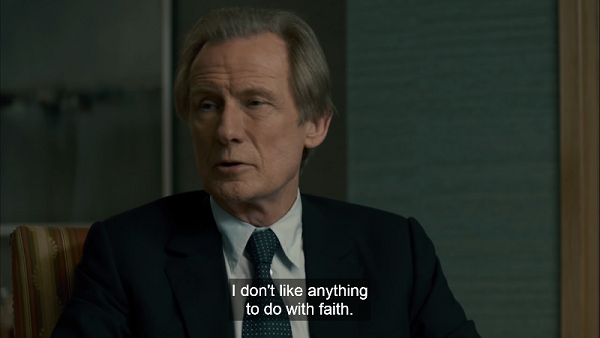What it means to live in a secular world
[ by Charles Cameron — mind of a skeptic, heart of a devotee ]
.
I’m heading the post with this video to capture your attention, but recommend you move right past it to the body of the text, and return to it later if and when you have an hour and more to spare:
**
I quoted Daveed Gartenstein-Ross in my post We’re a legacy industry in a world of start-up competitors as saying “we tend to think of ideas that are rooted in religion – as a very post-Christian country – we tend to think of them as not being real – as ideas which express an ideology which is alien to us” — and Dave Schuler commented:
I can’t help but think that is a point-of-view most comfortable to a Jew who has lived mostly in Oregon and on the East Coast of the United States. The view looks pretty different from the South, Peoria, or even the South Side of Chicago.
The question as to whether we live in a post-Christian or Christian country maps fairly closely, I think, onto the question whether the world we live in is a secular or religious world — and it’s that form of the distinction I’d like to address in this post.
Statistically, 70.6% of Americans polled by Pew consider themselves Christian, 5.9% either Jewish, Muslim, Hindu, Buddhist, or of other faiths, as against 22.8% unaffiliated, atheist or agnostic. America is clearly a predominantly Christian nation from that point of view.
It seems to me, however, that there are two ways of looking at our nation and world as secular — via recourse to structure, and via consideration of our media, analytic, and policy-making elites — and I want to offer up an example of each, as I found them in the last few days.
**
The first comes from a simply terrific lecture delivered at Stanford by Roberto Calasso in honor of his friend René Girard — as found at the head of this post:
One point is clear, that the world, for the first time, is covered by a sort of — entity — which is that entity which makes that airports in all parts of the world work more or less in the same way. And that is the way of the secular society. And of course if you go from the French airport to the cities, or from a German airport to the cities, you’ll find totally different things – but behind that, there is a structure which is common to all of the societies. And of course, there are very large islands of theocratic (or whatever you can call them) societies which are enemies of the secular society. But they are islands, rather large islands, in the middle of a texture which is much bigger.
There are economic and scientistic corollaries to this point, to be sure, but the point itself, the approach it takes, is one that I had vaguely surmised, perhaps, but have never before expressed nor seen expressed with such clarity.
We live in a world tilted towards short-cuts, not immersions — surfaces, not depth — and simply put, that predisposes us to the quantifiable and away from quality..
That’s one sense in which we live in a secular world — irrespective of our religious beliefs and disbeliefs.
*
But it is also the case that those who understand the world on our behalves — pundits, analysts and policy-makers — tend to do so in secular terms. I’ve read this idea, and indeed said it, many times, so rather than search out some appropriate quotes, I pounced on this screen capture from David Hare‘s brilliant movie, Page Eight, in which the senior MI5 analyst Johnny Worricker, played by Bill Nighy, speaks:
The Worricker Trilogy is on Amazon Prime now, if you have access. You’ll find some fine writing there..



